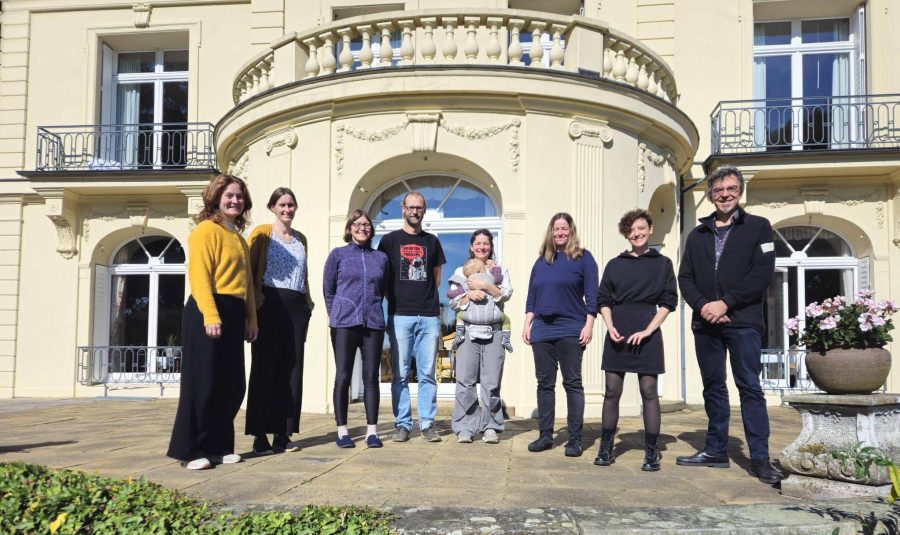OER Guidelines: University of Münster Defines Physics Education with Hyper-Collaboration
Last September 29 to October 2, the University of Münster tapped Book Sprints to facilitate the creation of a foundational Open Educational Resource (OER) guideline document for secondary education using hyper-collaboration. This Sprint was the critical first step in a long-term series designed to produce user-friendly, engaging, and effective teaching materials for a complex subject: Physics.
Fusing Theory and Practice
The team assembled was a powerful mix of expertise, strategically balancing academic perspective with on-the-ground knowledge. The group included three researchers from the University of Münster, who focus on educational research and project creation, alongside five practising classroom teachers. Many of these practitioners also hold roles in teacher training and academia.
This complementary blend of insight is what makes the collaborative framework so effective. All participants shared a common belief: this vital information should be freely available as OER, complete with easy-to-follow checklists for direct classroom use.
 University of Münster sprint participants with Book Sprints CEO Barbara Rühling
University of Münster sprint participants with Book Sprints CEO Barbara Rühling
The Challenge: Speed, Pressure, and the Unexpected
While the participants were initially unfamiliar with the hyper-collaboration Book Sprints method, their commitment was immediately evident. A typical Sprint takes five days, but this session was condensed to just three and a half days due to venue availability.
The team responded to the incredible time pressure with fierce dedication. They compensated by working after dinner each night, with some pushing through until midnight. Adding to the pressure, the three researchers had to simultaneously finalize a research funding application, essentially running an “application sprint” at night to meet a deadline. Furthermore, the team size shrank prematurely, as three participants had to leave early across different days, leaving only five people to handle the remaining load.

Co-authors powering through the night
The Outcome: Handbook, Not Just a Guideline
Despite the lack of days and reduced manpower, the team completely surprised themselves. Instead of simply drafting the intended guideline document, they completed a comprehensive OER Handbook—a far more extensive and valuable asset.
This outcome proved that the method, the hyper-focused setting, and effective facilitation worked. The hyper-collaboration did more than just produce a resource; the Sprint immediately kickstarted a new long-term project for the university. By laying a collaborative foundation, the team is now organized and planning a series of Book Sprints to create the actual teaching materials, with the Handbook serving as their strategic foundation. It will then be published online as Version 1.0, ready to be used as the definitive basis for all upcoming material creation – another definite win for the academic community leveraging hyper-collaboration to provide support for their colleagues, and enhance their impact.


